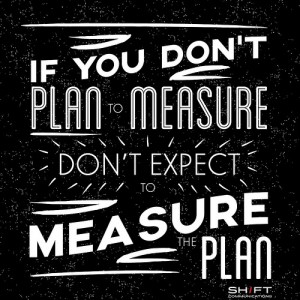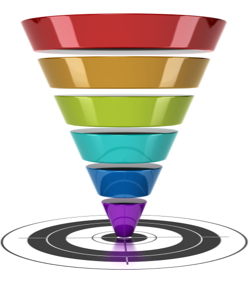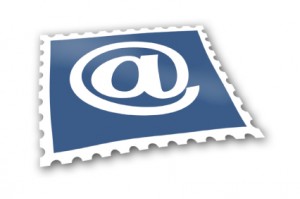Experiential marketing events are powerful draws that bring people and businesses together. However, since the pandemic, most businesses have had to switch to hosting online events.
This comes with unique challenges in spite of the fact that more people can participate in online events with their mobiles or desktop computers.
The problems a business might face include coordination, engaging people effectively, and managing the tech side of online event hosting.
So, in this post, we’ll run through a checklist of important elements you need to handle to host a successful online event.
An online event has many benefits:
- Your shine a spotlight on your business online and get attention
- You engage more of your audience
- An online event can help you build a community around your brand
And a successful event can be the perfect time to push a major product launch or announce a major event. Let’s look at how you can make set up an awesome online event.
Set a date and theme
A lot of your marketing activities will revolve around the timing of your event. When you have a clear time date for your event, you’ll be able to plan content, market your event, and more.
Pick a time and date that suits most of your audience. If you’re planning to have guests for your event, then you’ll need to make sure that they’re available too.
It’s helpful to have a theme for your online event since that will shape your agenda and marketing approach. You could create an FAQ event, a product launch, or a series of panel discussions. It will all depend on your industry, audience, and goals of your event.
Your event’s date, time, and theme matter because these things will affect how frequently you engage people and the intensity with which you’ll build up excitement as the event comes closer.
Create a registration form page
Coordinating how many people will participate and how to communicate with them is challenging if you don’t have a process in place.
You could simply uniform people on social media and count on them to appear at your event. But this leaves your communication at the hands of Facebook’s algorithms. You also will find it difficult to track who’s coming and how to share important information.
I suggest that you create an event registration form on your website. When promoting your event, keep driving people to sign up on the form. Doing this helps you by:
- Building your email list
- Creating a direct form of communication with your audience
- Enabling you to nurture your leads after the event is over
A tool like WPForms allows you to select an event registration template and integrate your form with email marketing services. If you’re charging for your event, you can also add a payment option to collect money.
The right tool will let you send information to your audience directly and your audience will also find the entire registration experience streamlined.
Have a clear agenda for the meeting
When setting up your event, it’s important to create an agenda for how your event will go. This will ensure that you stay within the time and budget for your event.
You can plan when a speaker will come on, the order in which you’ll share content, and how to close. One good idea is to stick around after an event to casually chat with users who haven’t left yet. It’s also a good idea to make some prerecorded content in case you want to create breaks during a long event.
Planning your agenda also gives you the chance to figure out what platform you’ll use, what settings you want to make available to your audience, and whether you should create time for your audience members to speak or chat.
Build momentum
Once you have a plan in place, you need to market your event in various ways. During your campaign, don’t just focus on finding new audience members, but keep re-engaging existing ones. Remind people about your event and get them excited about it happening.
Here are a few ways to build marketing momentum before your event:
- Make an email drip campaign so that you can send regular email updates with relevant content to existing participants
- Create a video teaser to highlight content that you’ll share at the event
- Plan and publish social media posts to inform users
- Create a landing page with a countdown timer so that it tracks when your event goes live
- Make a fun giveaway contest as part of the event
Doing these steps will create more excitement and get more people to participate.
Be prepared for tech issues
An event with many participants will have information and tech problems. You want to plan for possible problems like:
- Internet connectivity issues
- Unexpected video conferencing software problems
- Enquiries from customers as the event goes on
Keep a tech support team ready and available to respond to technical problems. And assign customer support staff to quickly respond to issues via email and social media. They can also reply to comments or chat conversations so that the host of the event can focus on keeping content going.
Host your event
When the time for your event comes, go live at the right time. Going live five minutes before the actual event can give you ya chance to informally connect with people. You can also check your settings.
If you’ve planned everything and shared your online links, then you’ll be able to focus on the event itself. During the event, remember to check the chat or the comment section for any feedback. This is a chance to connect with your audience at a deeper level and is a good time to create a positive impression by talking to people.
Continue engagement
Once the event is over, you can still leverage it to engage with people after the event.
Share the recording of your event on social media, send it via email to people who missed the event. You can also repurpose the event to create a blog post or an article.
Online events have a life beyond their actual occurrence. Use them by repurposing the event content and continue engaging with your audience.
Conclusion
With the tips given here, you should be able to plan a successful event. As you carry out an online event, you’ll also discover practices that work well for you.
Keep learning from your experiences and listen to your customers, and you’ll find ways to keep growing your business.
Digital & Social Articles on Business 2 Community
(42)






